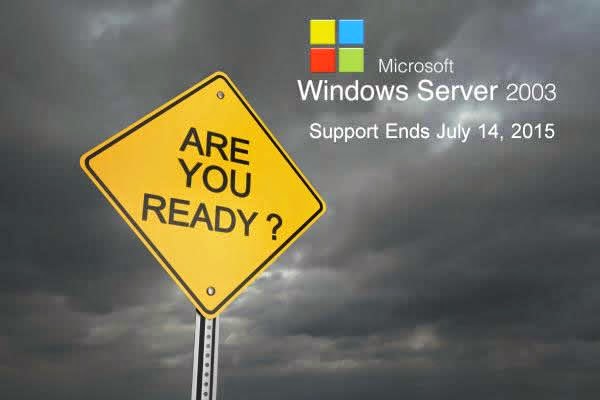With Deskulous helping to manage server RDC connections, we like to help you stay up to date with important news in terms of Windows servers. This is a great article from our Managed Service Provider and Cloud services partner nology networks.
___
Remember the build-up last year for the death of Windows XP? A similar scenario is happening this year, as Microsoft announced in November that it would end support for Windows Server 2003 and Server 2003 R2 on July 14th. That’s less than 180 days away!
The most immediate impact of this announcement is that any system using Windows Server 2003 will no longer receive updates or patches from Microsoft, which “can result in a less stable and less secure infrastructure for your organization.” according to Microsoft.
If you’re like most business owners, a stable and secure computing environment is essential for day-to-day operations and if your a compliance driven organization such as a bank or hospital you might not have a choice but to upgrade quickly or be out of compliance with federal guidelines come July.
Start Planning now. Here’s why:
Security risks.
Choosing to stay with Windows Server 2003 beyond the end-of-support date means no security updates or software patches, which can make you susceptible to data breaches, cyber-attacks, and other forms of security breakdowns. In 2013, Microsoft issued 37 critical security updates for Server 2003. After July, even if issues are discovered, they won’t be addressed.
Lack of compliance.
HIPAA, PCI, SSAE16 – If you’re a business with strict compliance requirements, falling into the non-compliance category could result in lost business or worse, dramatically increase the cost of doing business thanks to high transaction fees and civil penalties.
Your support costs may increase.
One of the biggest pushbacks when software goes out of support is that upgrading costs money. But the cost of maintaining legacy servers can also add up quickly, since enhanced support, extra intrusion detection systems, and more advanced firewalls might be required. In the long run, the cost benefit of upgrading is much higher than sticking with and attempting to prop up outdated software.
Successful migrations take time.
The deadline for Windows Server 2003’s end of support is less than 180 days away. Consider how essential a solid, well-functioning server is to your business before delaying action. The last thing you want to do is wait until just before the deadline and hope a rushed migration to Windows Server 2008 or 2012 doesn’t cause workplace interruptions or even system crashes.

